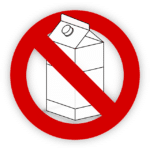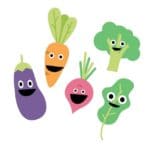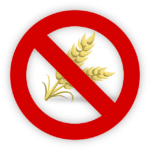The main dietary restrictions parents and teachers should know about are: lactose intolerance, vegetarianism and veganism, peanut allergies, diabetes, Celiac Disease and gluten intolerance, Kosher and Halal. These restrictions range from personal preference to disease and health to religious preference, but all should be treated seriously. Find out why below.
Managing childrens’ dietary restrictions requires a joint effort between the adults involved in a child’s life. Parents and preschool teachers need to communicate in order to ensure their child does not accidentally eat something they shouldn’t. Most children at this age don’t understand dietary restrictions are and will be happy to eat whatever looks good. Here is a list of useful dietary restrictions for preschool teachers and parents, and how to handle them.
A Word About Accommodations and Dietary Restrictions
Many preschools will have a process in place to ensure your child is safe and healthy. This is especially true for especially federally funded preschools such as Head Start. Make sure to be vigilant and use these forms to your advantage. Ask about accommodations as soon as possible and always make sure your child’s teacher understands your child’s accommodation.
Lactose Intolerance

People who are lactose intolerant cannot have sugar commonly found in dairy products such as milk or yogurt. If they accidentally consume dairy products, they may have the following symptoms: abdominal pain, diarrhea, or vomiting within a couple of hours.
Teachers
There is generally an accommodations process that should take place before the child starts attending your class. If a parent brings this up on the first day of class you should immediately redirect the parent to your supervisor or director to follow your center’s accommodations process as soon as possible. In the meantime, don’t feed the child any dairy!
Parents
You need to be asking about this as soon as you can. We recommend you get as much information as possible during the registration process. Make sure to ask questions about the accommodation and get clear answers from the preschool’s director. Additionally, make sure the teacher knows about your child’s accommodation on the first day of school. Your preschool should direct you to fill out accommodation forms to gain clearer information about this dietary accommodation.
Vegetarians and Vegans
People who are vegetarians or vegans do not eat any meat, poultry, fish, or shellfish. Vegans choose to avoid animal byproducts whether it is for eating, science, or entertainment. They believe animals have a right to exist without human intervention.
Teachers

There is usually an accommodation process that should take place before the child starts attending school. If a parent brings this up on the first day of class you should immediately redirect the parent to your supervisor or director to follow your center’s accommodations process as soon as possible. In the meantime, follow the child’s parent request.
Parents
Communicate to the Head Start or Preschool’s director to request for your child an accommodation as soon as possible. Ask for the food’s menu to make sure you know what your child will be serving during school’s meal times. Don’t forget to ask your child what they had to eat at school to ensure the accommodation plan has been met.
Peanut Allergies
People who have peanut allergies cannot have any peanuts at all. If they accidentally consume peanuts, some of the allergy symptoms include runny nose, skin reactions, itching, tingling, or tightening around the mouth and throat, diarrhea, nausea, vomiting, or shortness of breath or wheezing. People who are exposed to peanuts and are severely allergic to peanuts can have a life threatening reaction. Some people are so sensitive that breathing in a little peanut dust will trigger a reaction!
Teachers
Consider making your entire class a “No Peanut Zone” and place a sign at the class entries so others know. Depending on the accommodation, you may need to communicate with the other parents to not bring any peanuts to class in order to meet keep accommodated child safe. Also double check that meals do not have any peanut in them.
Parents
It is important to communicate this accommodation as early as possible You will most likely need to fill out accommodation forms and this may impact your child’s placement in a preschool. Also make sure the teacher knows, understands, and can administer the emergency plan in case the child accidentally eats peanuts and has a reaction.
Diabetes
People with diabetes have high blood sugar level, where their body does not produce enough insulin to create energy. There are multiple types of diabetes and each one requires different treatment. Depending on the type of diabetes a person has, they may need to manage their diet, exercise daily and/or take medication which involve insulin. Diabetic people need to be careful with their lifestyle as some of the following symptoms are: hunger and fatigue, frequent urination and a lot thristier, dry mouth and itchy skin, blurred vision, yeast infection, pain or numbness in your feet or leg, slow healing in sores or cuts, un-planned weight loss or recent weight gain.
Teachers
This is a serious accommodation and may require extra effort to make sure the child is safe and healthy. Make sure the child has an accommodation and corresponding plans of action put in place. These plans of action will include day to day activities, such as insulin shots, and emergency plans, in case the child’s condition spins out of control.
Parents
Make sure an accommodation plan is in place for your child as soon as possible. Give your school ample time to process your accommodation since it is especially crucial to your child’s health. If this is the first time your child is not in your care then you may want to spend time in your child’s class until you feel confident the teacher understands the accommodation.
Celiac Disease and Gluten Intolerance

People with Celiac Disease and gluten intolerance simply cannot have gluten that comes from wheat products. Gluten will slowly destroy the intestinal lining of those who have Celiac Disease, so this is a serious condition. People can be so sensitive to gluten that products that are cross-contaminated with trace amounts of gluten will affect them. For example, soy does not contain gluten, but since it frequently grows next to wheat fields, wind will blow wheat into the soy fields, and the soy will then be contaminated with gluten.
This is a difficult restriction to accommodate because it may mean a child needs their meals cooked separately from the food the other children eat. At this age, many children will not feel the effects from gluten, even though it is taking its toll, so children with Celiac or gluten intolerance will be fine eating cross contaminated products. Federal funding rules require programs such as Head Start to feed all of their children so a full accommodation is possible. However, private preschools may not be aware of some conditions and may be less accommodating. Parents should consider sending lunch to school with their child.
Teachers
This can be an intimidating accommodation to meet, so include the parents as much as possible until you feel comfortable. Also make sure parents fill out their accommodation forms if your school has such a process.
Parents
Fill out accommodation forms as early as possible. Double and triple check the facilities to make sure they understand your child’s condition. Many people say they understand and can accommodate your child but really have no idea what they’re doing. Don’t be afraid to be vigilant!
Kosher
Many Jewish people practice a religious diet known as Kosher. The diet is a set of rules and guidelines that determines what people can and cannot eat. Some of the rules dictate which types of meat, fruits, and seafood are allowed in a Kosher diet.
Teachers
There is no need to worry about diseases and allergies in this case. If a child has religious dietary restrictions you should consider ways to accommodate them, such as making sure meals have a Kosher component to them. If you can’t figure it out, just ask the parents for assistance until you have enough working knowledge to include the diet.
Parents
There is generally not an accommodations process involved with religious dietary restrictions. However, some preschools and Head Starts may require you to fill out a form as part of a dietary accommodations process. You should rely on communicating with everyone at the preschool as early as possible and continue communicating until the teacher shows they know how to care for your child’s diet.
Halal
Halal is also a religious dietary set of rules and guidelines that Muslim people practice. Some of the restrictions include eating meat only if it was slaughtered in a way approved by the Quran. Also, pig meat is strictly forbidden.
Teachers
There is no need to worry about diseases and allergies in this case. If a child has religious dietary restrictions you should consider ways to accommodate them, such as making sure meals have a Kosher component to them. If you can’t figure it out, just ask the parents for assistance until you have enough working knowledge to include the diet.L
Parents
There is generally not an accommodations process involved with religious dietary restrictions. However, some preschools and Head Starts may require you to fill out a form as part of a dietary accommodations process. You should rely on communicating with everyone at the preschool as early as possible and continue communicating until the teacher shows they know how to care for your child’s diet.
Learn More About Dietary Restrictions
Head Start’s Early Childhood Learning and Knowledge Center has great information and tools on nutrition.
